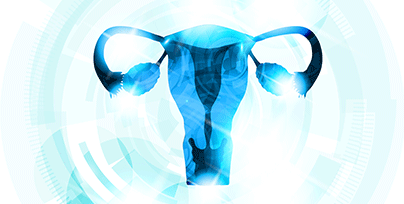Recipes
Polycystic ovarian syndrome (PCOS) is a common female disorder of the endocrine (hormone) system causing metabolic changes and elevated androgen hormones, which leads to cysts in the ovaries, infertility, elevated blood sugar, menstrual cycle changes, and other symptoms related to androgen excess.

Polycystic ovarian syndrome (PCOS) effects many women around the world at an estimated 15%-20% of the population1 depending on the criteria used to diagnose the condition. Symptoms and signs of PCOS vary from person to person, but here are some signs and symptoms that may present in someone with PCOS:
Women who have PCOS have differences in the metabolism of sex hormones, such as estrogen and androgens, and typically have insulin resistance. PCOS is not understood completely, however, the primary cause may be the Standard American Diet with all its disruptive hormonal effects, but there is also evidence that there are genetic contributions to the development of the disease. Like other common chronic illnesses, lifestyle changes, including diet and exercise, are considered the standard of care and first-line therapy, however, many with PCOS still do not make a full effort to implement these lifestyle changes. We already know that following a Nutritarian diet reduces body fat, improves insulin resistance (lower blood sugar), and reduces testosterone and its side effects in women, which in turn, can greatly reduce the physical effects of PCOS. Women with this condition can take comfort that a Nutritarian diet routinely results in the reversal of this condition, as well as enabling the fertility of many prior infertile couples.
A Nutritarian eating style is ideal for improving the symptoms of and resolving PCOS as it lowers the blood sugar, testosterone, and body fat causing hormonal dysfunction.
Further restrictions in the diet to help lower the glycemic load of the meals may be considered for those with significant metabolic syndrome and diabetes (see Diabetes for more) including:
Exercising regularly and even better, once or twice daily, helps to lower blood sugar, which may help reduce symptoms of PCOS
ONLINE: All members of DrFuhrman.com can search the Ask the Doctor archives for discussions on this topic. Platinum and Diamond members can connect with Dr. Fuhrman by posting questions in the forum. Not a member? Join now.
IN PERSON: Book a stay at Dr. Fuhrman’s Eat to Live Retreat in Southern California. With options ranging from one, two and three months (and sometimes longer) you will be under Dr. Fuhrman’s direct medical supervision as you hit the “reset” button on your health. For more information: (949) 432-6295 or info@ETLRetreat.com.
EVENTS: Join Dr. Fuhrman for an online boot camp, detox or other event. During these immersive online events, you’ll attend zoom lectures, follow a special meal plan, and have access to a special, live Q&A session with Dr. Fuhrman. Learn more about events.
The following are sample questions from the Ask the Doctor Community Platinum and higher members can post their health questions directly to Dr. Fuhrman. (All members can browse questions and answers.)
My 32-year-old daughter suddenly had extra bleeding during her most recent cycle. She’s also been having terrible back pain and great fatigue. Her gynecologist told her that her ovaries are full of cysts, including one complex cyst. She has both endometriosis and PCOS and was told that she has a high level of testosterone. Her doctor wants to do surgery to get at least the complex cyst out. My daughter is not ready to give up on the hope of having children, so she wants to save her ovaries and get healthier. She is very thin, about 5’8" and 110 pounds. She walks several miles a day and lifts weights. She does not follow a Nutritarian diet. If she changes her diet, would her body quit making cysts and the PCOS resolve?
PCOS is more common in obese women, but 5% of lean women have PCOS. Most women with PCOS have insulin resistance, where the cells become numb to insulin’s call to let glucose into the cell. High insulin levels drive the ovaries to make more testosterone. Genetics also plays a role in testosterone levels. Forty percent of women with PCOS have a sister with it as well. Also, chronic stress can increase testosterone and insulin resistance.
A Nutritarian diet will reduce insulin resistance, lower testosterone levels, and reduce low grade inflammation associated with it. Eating high fiber foods, such as vegetables, fruits, and beans, increases the excretion of testosterone in the stool. Your daughter should avoid dairy, all refined foods, sugars, and unhealthy fats. She should include chia, flax, and hemp seeds in her diet. Regarding exercise, yoga has recently been shown to be more effective than other exercise in improving insulin resistance in PCOS.
I have seen a Nutritarian diet fix the hormonal abnormalities and resolve PCOS, even in thin people again and again. Even my wife was one of these individuals when she was young.
Hopefully nutritional changes can make a big difference in how she feels, and she will feel empowered to go all the way to superior nutrition and get well.